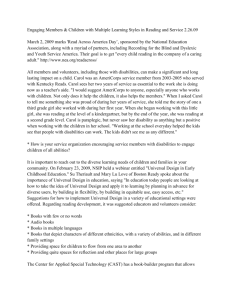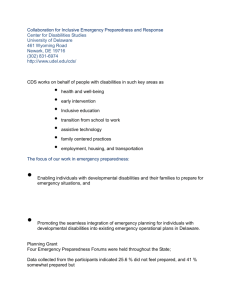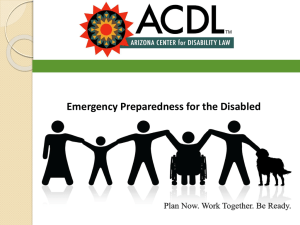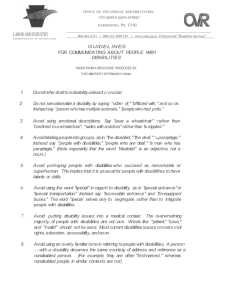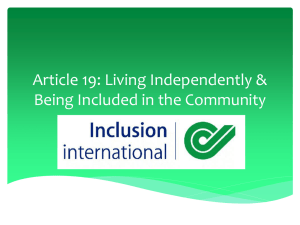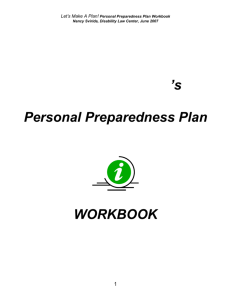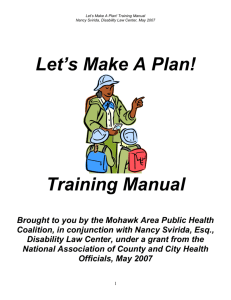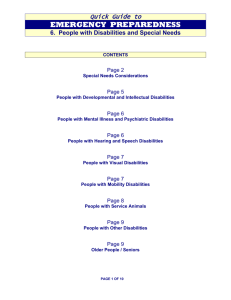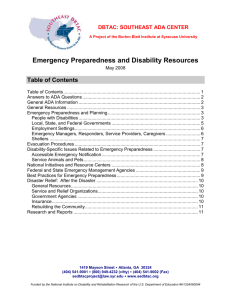Emergency Preparedness and Persons with Disabilities
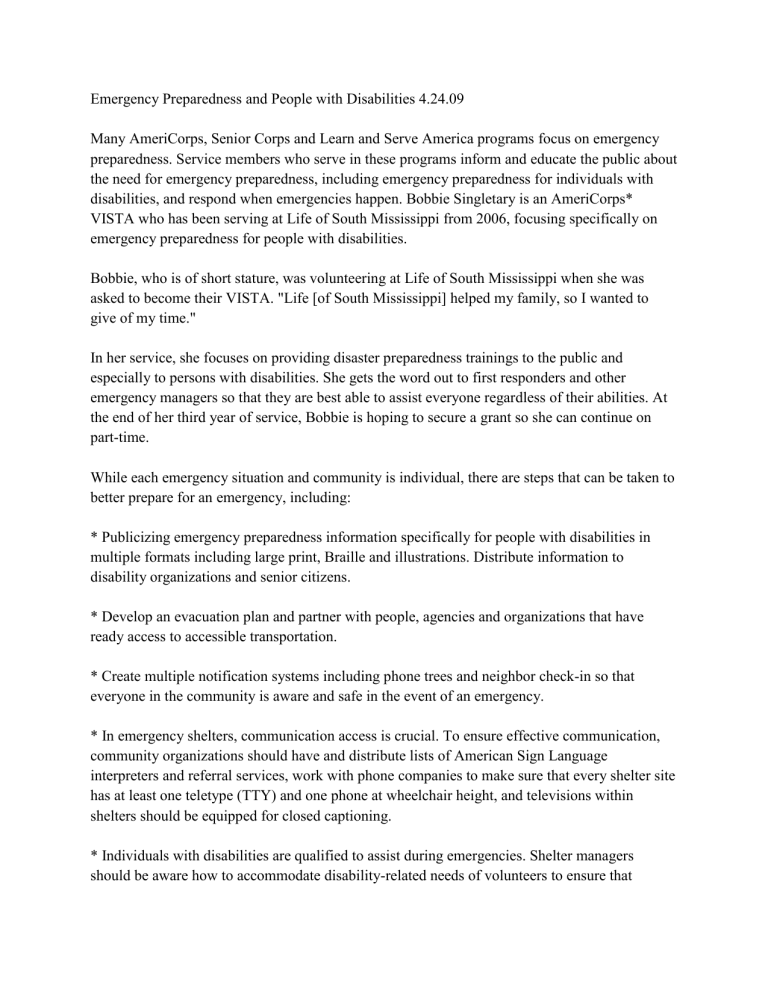
Emergency Preparedness and People with Disabilities 4.24.09
Many AmeriCorps, Senior Corps and Learn and Serve America programs focus on emergency preparedness. Service members who serve in these programs inform and educate the public about the need for emergency preparedness, including emergency preparedness for individuals with disabilities, and respond when emergencies happen. Bobbie Singletary is an AmeriCorps*
VISTA who has been serving at Life of South Mississippi from 2006, focusing specifically on emergency preparedness for people with disabilities.
Bobbie, who is of short stature, was volunteering at Life of South Mississippi when she was asked to become their VISTA. "Life [of South Mississippi] helped my family, so I wanted to give of my time."
In her service, she focuses on providing disaster preparedness trainings to the public and especially to persons with disabilities. She gets the word out to first responders and other emergency managers so that they are best able to assist everyone regardless of their abilities. At the end of her third year of service, Bobbie is hoping to secure a grant so she can continue on part-time.
While each emergency situation and community is individual, there are steps that can be taken to better prepare for an emergency, including:
* Publicizing emergency preparedness information specifically for people with disabilities in multiple formats including large print, Braille and illustrations. Distribute information to disability organizations and senior citizens.
* Develop an evacuation plan and partner with people, agencies and organizations that have ready access to accessible transportation.
* Create multiple notification systems including phone trees and neighbor check-in so that everyone in the community is aware and safe in the event of an emergency.
* In emergency shelters, communication access is crucial. To ensure effective communication, community organizations should have and distribute lists of American Sign Language interpreters and referral services, work with phone companies to make sure that every shelter site has at least one teletype (TTY) and one phone at wheelchair height, and televisions within shelters should be equipped for closed captioning.
* Individuals with disabilities are qualified to assist during emergencies. Shelter managers should be aware how to accommodate disability-related needs of volunteers to ensure that
volunteers who would like to help are actively engaged and are able to provide assistance.
* How does your organization work to prepare people, including individuals with disabilities, in the event of an emergency?
Please share your experience so that we all can learn. Send responses to Sarah Kaplan at sarah.kaplan@umb.edu and they will be compiled for a future Inclusion Weekly.
For more information about emergency preparedness for people with disabilities, visit:
Preparing for Disaster for People with Disabilities and other Special Needs (FEMA): http://www.fema.gov/pdf/library/pfd_all.pdf
Interactive Map of Disability & Emergency Preparedness Resources http://www.nod.org/EPIResources/interactive_map.html
Employers' Guide to Including Employees with Disabilities in Emergency Evacuation Plans http://www.jan.wvu.edu/media/emergency.html
We always look forward to serving you! Please feel free to contact us with any disability inclusion questions and requests for information at NSIP@umb.edu or 888-491-0326 (V/TTY).
Visit http://www.serviceandinclusion.org/index.php?page=request for a list of trainings offered by NSIP.
Yours in Service,
Sarah Kaplan
Training Associate
National Service Inclusion Project www.serviceandinclusion.org
The National Service Inclusion Project is a cooperative agreement (08TAHMA001) between the
Corporation for National and Community Service and the Institute for Community Inclusion at
UMass Boston in collaboration with the Association of University Centers on Disabilities,
Association on Higher Education and Disability, National Council on Independent Living and
National Down Syndrome Congress. Information contained in this email is for informational purposes only and does not imply endorsement from the National Service Inclusion Project or the Corporation for National and Community Service.
